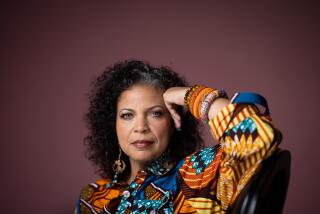A Lament for the Loss of Some Dialogue
- Share via
Too often when a marriage fails, the two partners lament that they loved each other but “love was not enough.” The statement points out the obvious fact that good intentions alone cannot sustain a relationship. Los Angeles’ Black-Korean Alliance had lots of good intentions; unfortunately, that clearly was not enough to enable it to survive.
The alliance of about 30 community groups quietly disbanded last month, a victim of not enough action at a time in the city’s history when talk is a little too cheap.
The alliance had formed about six years ago, when tensions between the city’s African-American and Korean-American populations seemed little more than the results of misunderstandings that could be handled by the coolheaded and the reasonable. In 1986 it seemed reasonable to expect that representatives of such august groups as the Southern Christian Leadership Conference, the United Way, the Korean Chamber of Commerce, the Korean American Coalition and the Urban League could come together, discuss problems between the two communities and work things out. It is indeed a distressing indictment of the state of human relations in Los Angeles that in 1992 such an expectation no longer seems reasonable.
Given the heightened tensions that the riots brought--and the controversial liquor store shootings and boycotts that preceded the riots--members found themselves torn between loyalties to their constituencies and a desire to find common ground.
The alliance “was a group talking about dialogue in an era where the two sides are polarized,” said one African-American former member. “There are tensions, but it’s not just a black-Korean conflict,” said one Korean-American former member. “Problems of racism, hopelessness and despair are bigger than what the (alliance) was about.”
But even in all this darkness, there is light. There still exists the African American-Korean American Christian Alliance, as well as groups that specialize in resolving problems, such as the Asian Pacific American Dispute Resolution Center and the Martin Luther King Jr. Dispute Resolution Center.
Perhaps more important, a new, broader multiethnic effort has begun. The Multi-Cultural Collaborative, which has received funding from the James Irvine Foundation and others, will have two advantages that the alliance did not have: staff and grass-roots organizers.
So while talk alone was not enough for the Black-Korean Alliance, let’s hope that the value of talk has not been lost on those still trying to keep the lines of communication open. Because talk can and should lead to constructive action--the very antithesis of what Los Angeles saw in April.
More to Read
Sign up for Essential California
The most important California stories and recommendations in your inbox every morning.
You may occasionally receive promotional content from the Los Angeles Times.













